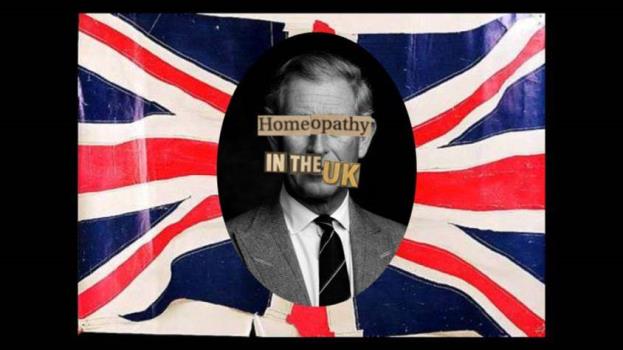[Editor’s note: For no reason whatsoever other than to share great news, we bring you this contribution from Michael Marshall, project director of the Good Thinking Society and vice president of the Merseyside Skeptics Society.]
 As regular readers of this blog may know, skeptics here in the UK have been campaigning for some time to end the funding of homeopathic remedies by the National Health Service. This is a campaign that we at the Good Thinking Society – the charity I work for full-time, led by science writer Simon Singh (yes, that Simon Singh) – have been at the forefront of over the last couple of years, and we recently secured a significant victory as NHS Liverpool brought their homeopathy service to a close, as a direct result of the legal challenge we brought in 2014.
As regular readers of this blog may know, skeptics here in the UK have been campaigning for some time to end the funding of homeopathic remedies by the National Health Service. This is a campaign that we at the Good Thinking Society – the charity I work for full-time, led by science writer Simon Singh (yes, that Simon Singh) – have been at the forefront of over the last couple of years, and we recently secured a significant victory as NHS Liverpool brought their homeopathy service to a close, as a direct result of the legal challenge we brought in 2014.
While the background to our project was ably and generously described by Harriet Hall here at Science Based Medicine following her appearance at the QED conference last year, it is perhaps worth detailing the progress we’ve made in the last year, and how this success came about. After a series of Freedom of Information requests allowed us to determine where in the country homeopathy is funded by public funds, we were able to monitor for new funding decisions being made – knowing that any decision to spend public funds can be subjected to scrutiny and to legal challenges if not carried out correctly.
Delving into the details
Drawing on the expertise and advice of lawyers Jamie Potter and Salima Budhani at the public law firm Bindmans LLP, we were able to identify the first health body with a potential funding challenge, coincidentally in my hometown of Liverpool. Despite a full review of homeopathy services resulting in the recommendation to cease all funding, and despite there being no public objection on the proposal to end homeopathy funding during the public engagement phase of the consultation, NHS Liverpool clinical care group (CCG) made the inexplicable and (to our minds, at least) indefensible decision to recommission the service and sign a new contract with their homeopathy service provider.
Once the decision to renew funding was made, the clock started on a three-month window in which we could bring a legal challenge, with the help of Bindmans and with the support of the skeptical community who helped us crowdfund some of the legal costs of the campaign (the appeal is still open, as we’ll need funding for the rest of our work on this project!). Fortunately, our challenge was a success: in April 2015 Liverpool CCG decided to revisit their decision, electing to design a new consultation process which began in November 2015.
A rare opportunity firmly seized
The new consultation offered an unprecedented opportunity for skeptical activists and an organisation like ours. Often in situations such as these, the first time skeptics hear of a consultation process is after it is completed – we are rarely considered active stakeholders in the decision-making process, in the same way that homeopathy lobby groups, patients and industry bodies are. This means that while public consultations, in order to be run fairly (and to avoid legal challenges over their validity), often engage with proponents of homeopathy, they don’t necessarily engage people whose view is that homeopathy is not an effective treatment or a cost-effective way to spend limited resources.
Our involvement in the consultation took place in several stages. Firstly, we were able to review the proposed public engagement questionnaire, to help assess whether it was a fair method of gathering a true view of public opinion. This was particularly useful, as it’s often the case with opinion surveys that the manner in which questions are asked heavily influence the answers returned, so we were keen to avoid a survey which solicited nothing but “it worked for me” stories.
Meanwhile, with the date of the consultation in mind, we were able to prompt submissions and evidence reviews from prominent skeptics Edzard Ernst and the Nightingale Collaboration. Knowing it was very likely that professional homeopathy organisations such as the Society of Homeopaths and British Homeopathy Association would be writing to the CCG to offer their views, we were able to pre-empt a lot of their submissions, anticipating their core arguments and the studies they would rely on to ‘prove’ homeopathy works. This helped ensure an accurate reading of the evidence could be made, and that the consultation wouldn’t be side-tracked by red-herring studies.
Once the consultation was actually launched, we worked with the Merseyside Skeptics Society to ensure local skeptics gave their feedback in the consultation. We were confident there would be no shortage of homeopathy supporters offering their views, led by those professional homeopathy organisations, so it was important to us that there were plenty of skeptical voices in the consultation too.
Crucially, of course, this was not a case of a public vote: the outcome of public engagement exercise would be weighed up alongside reviews of the evidence. However, if the public engagement showed overwhelming support for homeopathy, it would have been harder for the health body to end funding than if there was more of a range of views within the public responses.
A marrying of opinions and evidence
One element of the consultation involved a public meeting, which turned out to be one of the most extraordinary experiences I’ve had during my time as a skeptical activist, where an attempt by the CCG to hear and make note of the range of views in the room was wholly hijacked by a homeopathy lobby group and the providers of the homeopathy service under threat. The full story of the afternoon meeting is much too involved and complex to detail here, but for those who are interested we spoke about it at length on my podcast Skeptics with a K. What I will say, however, is that the opportunity to hear from patients of pseudomedical treatments directly is always a valuable one, and one that I urge skeptics to take wherever possible. Being able to really listen, politely and empathetically, to why people are convinced to believe in alternative medicine allows us to be more effective in our activism and campaigning.
In the end, the response from the skeptical community and the wider public was astonishing, with more than 740 responses to the online survey – all of which are available to read in the CCG’s June 2016 agenda. 73% of all respondents called for an end to the homeopathy service, and if we focus on just the 300+ responses from Liverpool residents, 64% of respondents wanted to cease homeopathy funding. This was more than we anticipated, and shows public feeling around homeopathy is pretty clear: it has no role in public-funded healthcare. It is no surprise, then, that NHS Liverpool CCG ended their homeopathy service in June.
The next step!
While this is a useful local victory, its reach is far broader – with only a minority of NHS CCGs around the country still funding homeopathy services, this creates a clear precedent for those CCGs to review and close their service. Next up to review their funding is NHS Wirral CCG, across the River Mersey from Liverpool. Their consultation closed on July 15th, and Good Thinking has been able to take what we’ve learnt from the Liverpool CCG consultation and use it in our participation in the Wirral.
Once again, we’ve promoted the online survey around skeptics and encouraged participation. Once again, we attended a public consultation (highlighting issues that arose at the Liverpool public meeting to ensure a fairer and less hostile atmosphere for all). Once again, we’ve encouraged experts to write in with their appraisal of the evidence and their pre-emptive response to the evidence of the homeopathy bodies.
We are hopeful that NHS Wirral CCG, like their counterparts in Liverpool, are able to take this as an opportunity to make a sensible decision to end support for pseudoscience and free up limited resources for treatments that actually work. If they do, they’ll add their names to an increasing roll-call of health bodies in the UK to finally step away from this long-debunked quackery – leaving only a handful of CCGs left in the Bristol and London regions as the last bastions of NHS homeopathy. They will be the next focus of our attentions, along with our push to have homeopathic remedies blacklisted on the NHS.
 Michael Marshall is project director of the Good Thinking Society and vice president of the Merseyside Skeptics Society. He tweets at @MrMMarsh.
Michael Marshall is project director of the Good Thinking Society and vice president of the Merseyside Skeptics Society. He tweets at @MrMMarsh.
